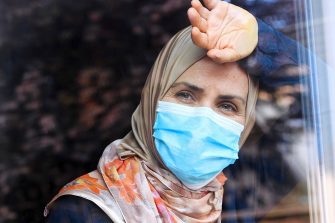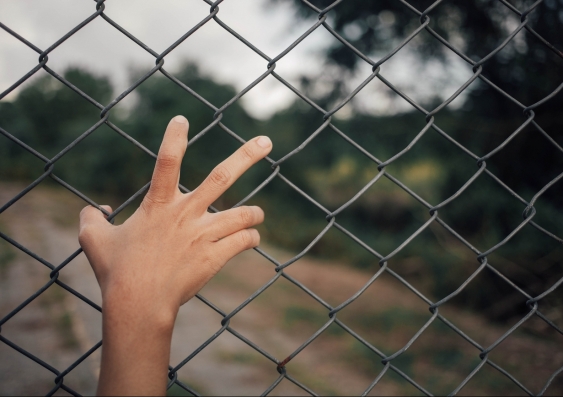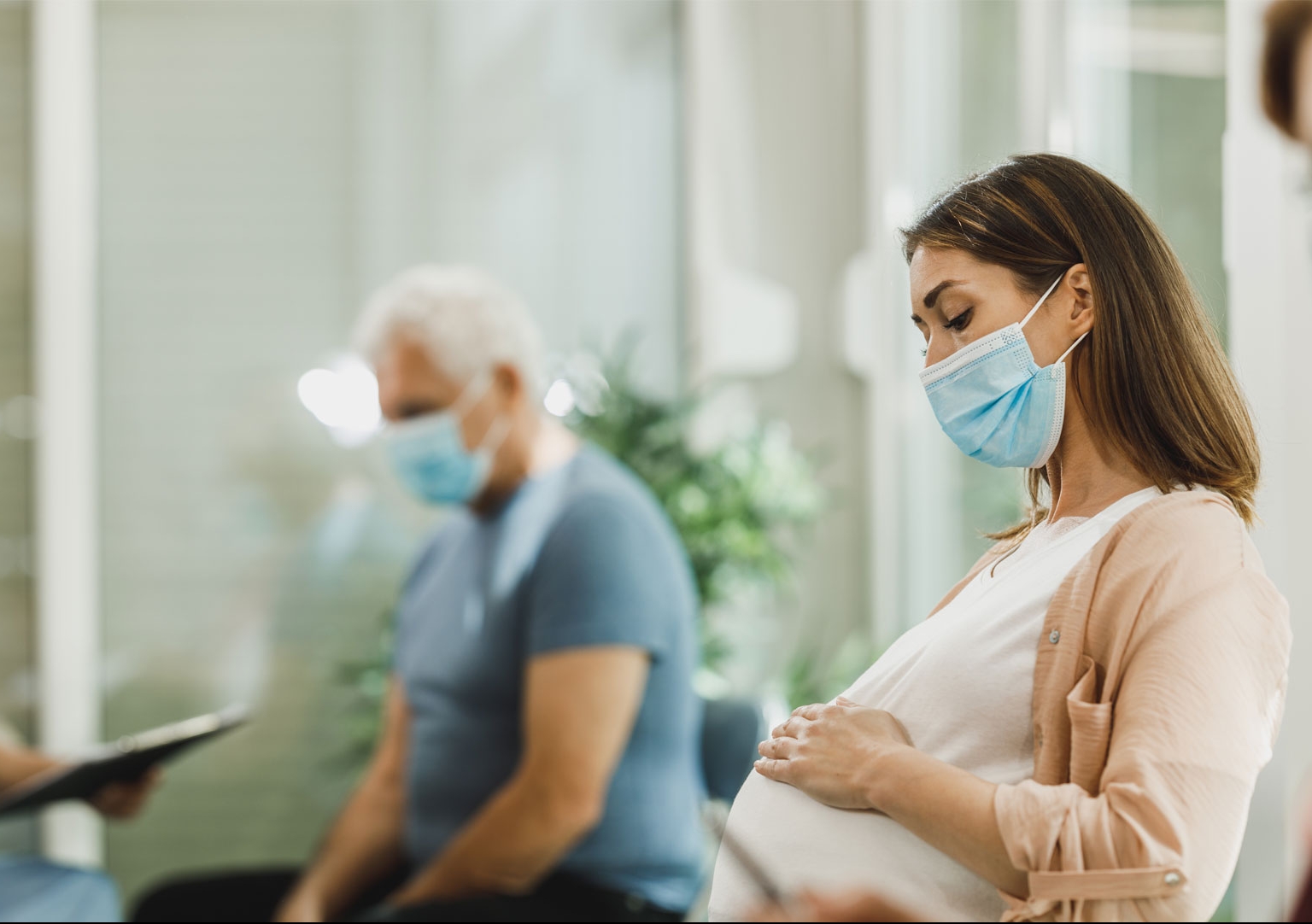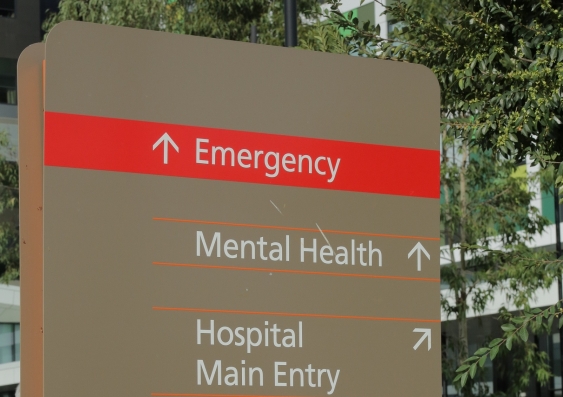Women from refugee backgrounds at higher risk of mental distress due to COVID-19: study
2023-07-05T11:17:00+10:00

Photo: iStock
New research from UNSW Sydney reveals the mental health impacts of the COVID-19 pandemic for women of refugee backgrounds living in Australia..
War led Nawal Nadar to flee her home country of Lebanon to Kuwait, then the United Arab Emirates, and finally arriving in Australia in 1998. Ms Nadar is now a maternity liaison officer at Blacktown Hospital in Sydney’s West, working with women who also come from conflict-affected backgrounds. Their experiences are vastly different to people born in Australia, particularly when it comes to mental health.
“They've been through a lot. They had to leave their villages, their homes. They've lost everything,” Ms Nadar says.
Ms Nadar saw that for this group of women, the COVID-19 pandemic resurfaced trauma and exacerbated existing mental health issues. However, until now these struggles have been mostly unseen. Previous COVID-19 mental health research conducted has mostly involved self-report or online surveys conducted primarily amongst general populations.
For a lot of women, the pandemic brought up bad memories. And although we don’t have lockdowns anymore, it’s far from over.
New research led by UNSW Sydney in partnership with Monash University, which Ms Nadar was involved in, examines the mental health impacts of COVID-19-related stressors on women of refugee background living in Australia. The study, published in PLOS Global Public Health, compared these women to Australian-born women.
“We were incredibly concerned to see that women from refugee backgrounds had much higher levels of mental health concerns associated with COVID-19,” says first author Professor Susan Rees, who is a Professor in Psychiatry at UNSW Medicine & Health.
“When people talk about mental health, they don’t often look at the unique experiences of women who have come to Australia from conflict-affected backgrounds. They may have underlying mental health problems. Not enough attention is given to supporting people financially, socially and psychologically when they arrive in Australia and settle here.”
Monitoring vulnerable groups
The researchers have been following women in Australia as part of a long-term program of research called the WATCH cohort study. A sample of 1335 women were originally recruited in 2015 and 2016 from three public antenatal clinics in refugee-dense areas in Sydney and Melbourne. Approximately half of the women were Australian born and half were of refugee background from conflict-affected countries (mainly Iraq, Lebanon, Sri Lanka and Sudan).
Over the years, the researchers conducted interviews and surveys with the two groups to examine their mental health status, along with other factors like functioning, financial stress, traumatic events, and social support networks. According to Prof. Rees, women of childbearing age with refugee background are particularly at risk of experiencing mental distress.
“Women's experiences are often neglected in health and in mental health as well, and the perinatal period is a particularly sensitive time. When you look at the demographic data for new arrivals, there is a substantial group of childbearing age women from conflict-affected settings. Those women have unique needs, and many require intervention and support,” Prof. Rees says.
In a previous paper published in 2020, the researchers observed that for women with refugee backgrounds, COVID-19-related stressors could be trauma triggers. A trauma trigger is when a situation induces someone to recall a traumatic experience, exacerbating mental health problems and interfering with day-to-day life.
Now the researchers have gone a step further. Between Feb 2020 and June 2021, the researchers conducted in-depth surveys with a sample of 650 women from the WATCH cohort. These women were 52 per cent from refugee backgrounds and 48 per cent Australian-born. The researchers quantified COVID-19 pandemic-related mental distress and material hardship, explored how these factors were related, and also quantified mental disorders in both groups.
“We used diagnostic measures for a range of common mental disorders and some others that tend to specifically affect people who’ve had trauma,” Prof. Rees says.
High rates of mental distress
Nearly half (47.3 per cent) of the Australian-born women in the study reported having ‘a problem or a very serious problem’ with fear or stress associated with COVID-19; this rate was significantly higher (68.7 per cent) for women from refugee backgrounds.
According to Prof. Rees, past trauma contributed to the higher rates of fear and stress for the women with refugee background.
If you have prior trauma, you are already sensitized to maybe having a stronger stress response when there are additional stressors in your life.
“Women fear ongoing loss of health status and livelihood, they experience sickness of children and death of family members. Separation from family at home and isolation in Australia are also significant factors. In the past, lockdowns triggered a large concern because some of these people come from regimes where they’ve been controlled and persecuted. When there was police presence on the streets in Western Sydney, that caused a lot of anxiety."
A third (32.5 per cent) of the Australian-born women reported having ‘a problem or a very serious problem’ associated with material hardship related to COVID-19; this rate was again higher (47.2 per cent) for women from refugee backgrounds. Material hardship means economic and social challenges, for example losing a job or having insufficient money to cover daily costs.
Higher prevalence of economic and social factors due to COVID-19 also contributed to significantly higher levels of mental distress among the women with refugee background.
Pandemic struggles far from over
This is a unique example of large scale, systematic research into the mental health of women from refugee background in Australia during the COVID-19 pandemic. Prof. Rees says that research like this is important to demonstrate that many of these women are struggling, and to inform and advocate for improved services and support.
The researchers are applying to the current funding body, the National Health and Medical Research Council (NHMRC), to extend the WATCH cohort study. They will be following the women for longer, and they will examine the mental health and development of their children.
“There needs be a better awareness of how COVID-19 is currently, not just in the past, but currently affecting people's mental health. Australia will also benefit from prospective evidence about what is needed and where to target to reduce risk and assist those most at risk,” Prof. Rees says.
“We need to be pulling together and focusing on people that need the most support during COVID-19. For some of us, we're trying to get on with our lives and we might have better resources available to do that. But for many people who have trauma or are socially or economically disadvantaged, the pandemic is far from over.”
Media enquiries
For enquiries about this story and interview requests please contact Maddie Massy-Westropp, News & Content Coordinator, UNSW Medicine & Health.
Tel: +61 2 9348 1936
Email: m.massywestropp@unsw.edu.au
Alternatively, please contact Samantha Dunn, News & Content Coordinator, UNSW Arts, Design & Architecture.
Tel: + 61 2 9065 5455
Email: samantha.dunn@unsw.edu.au
Related stories
-

High rates of physical and mental health problems found in children held in detention on Nauru: study
-

Pandemic stress had a greater impact on those who were pregnant, study finds
-

COVID’s mental health fallout will last a long time. Here's how we're targeting depression and anxiety
-

More children and adolescents in mental health crisis since beginning of COVID-19 pandemic: study


